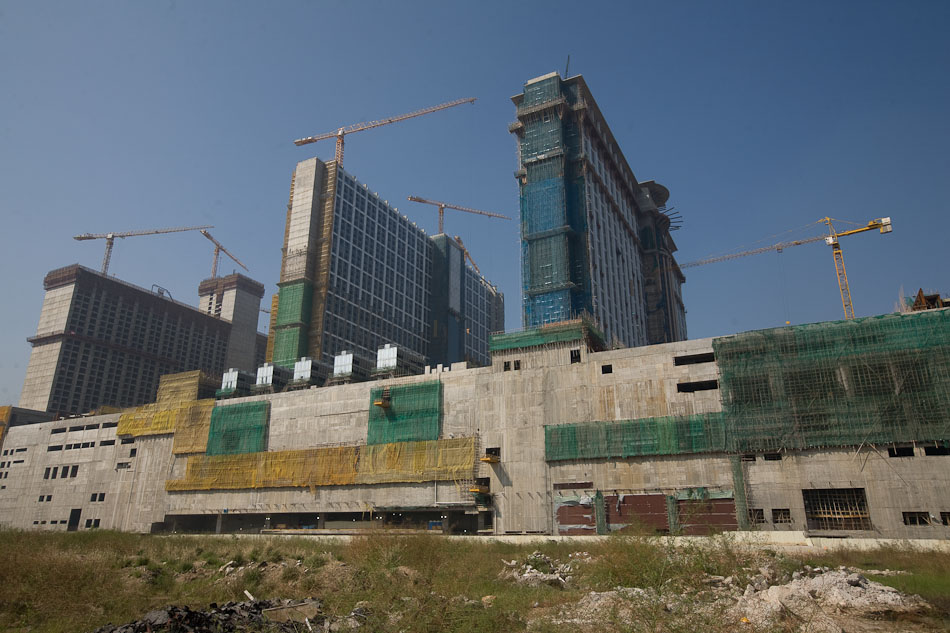Aug 5, 2009 | Society, Youth
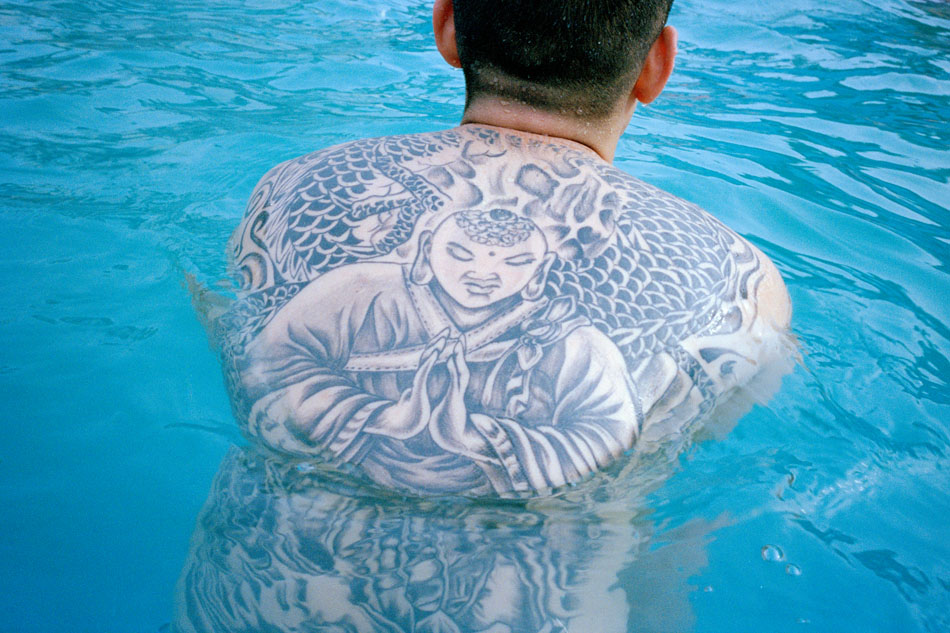
Located in the heart of Beijing’s central business district, just north of the newly completed CCTV Tower, Tuanjiehu Park easily takes the cake for a convienent respite from the summer heat. While certainly not a fountain of youth, it still draws all walks of life from across the city – tattooed gangsters and children share inner tubes while lady boys in banana slings contest for sand space with the elderly. There is always a motley crew trying to catch a little sun or enjoy a quick run down a water slide. Just be wary of friends trying to bury you in the sand. Still, if you close your eyes and listen closely to the wave generator, you might as well be at the beach.
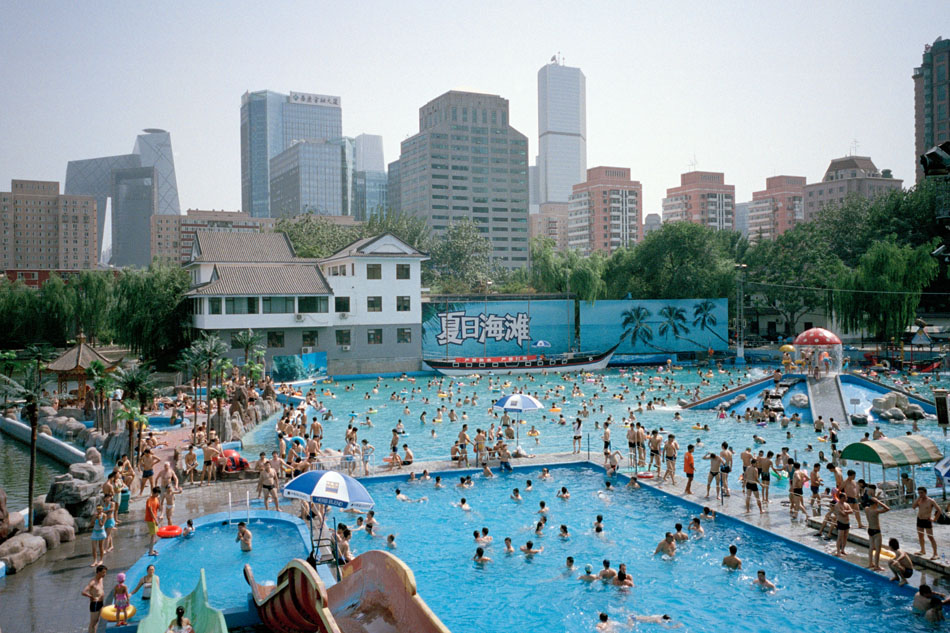
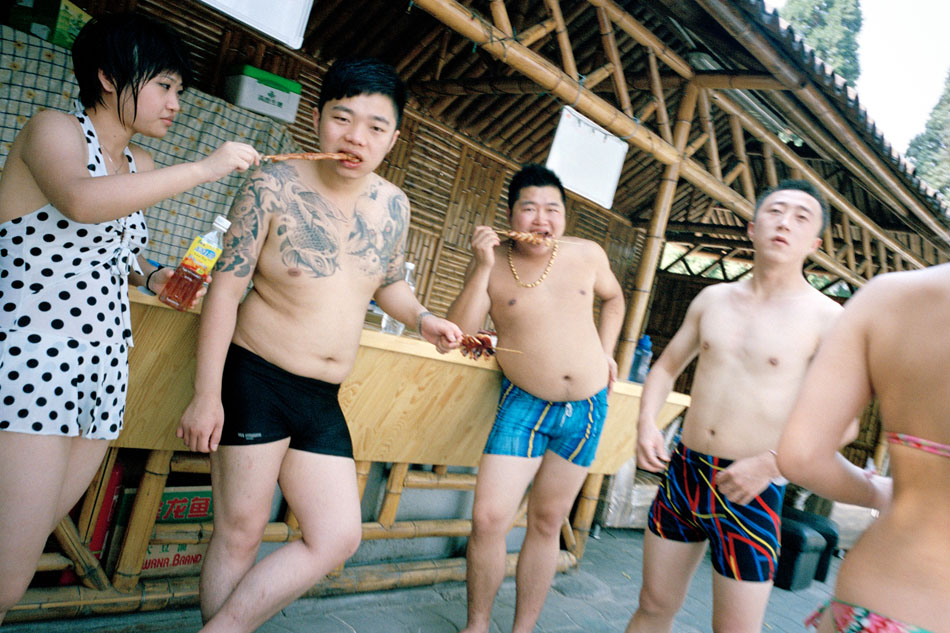
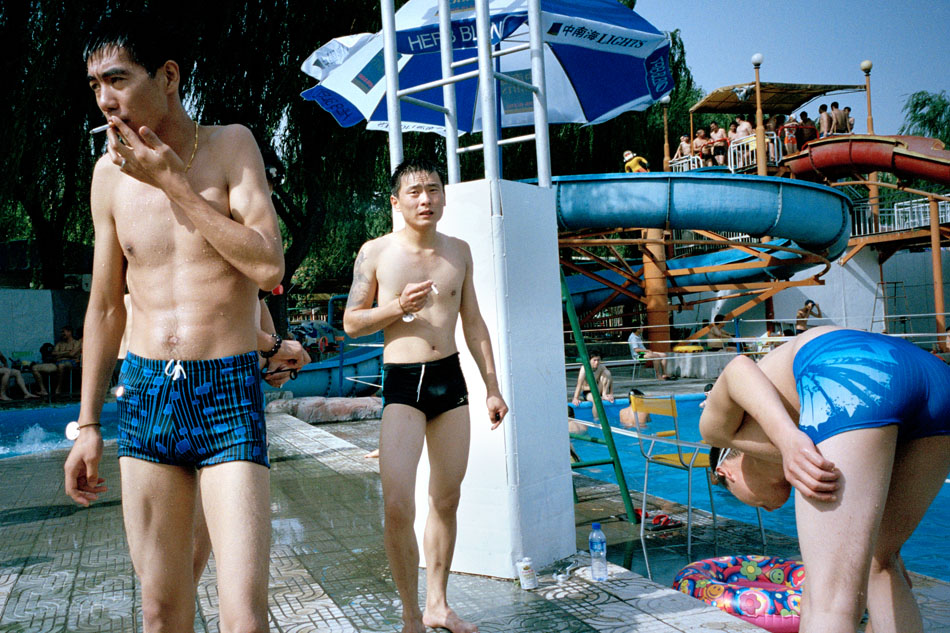
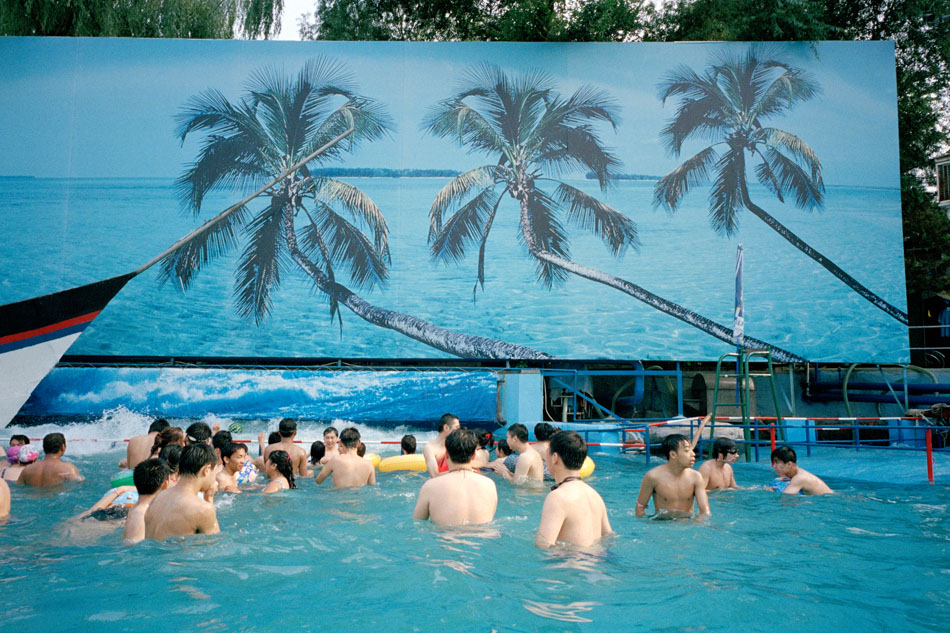
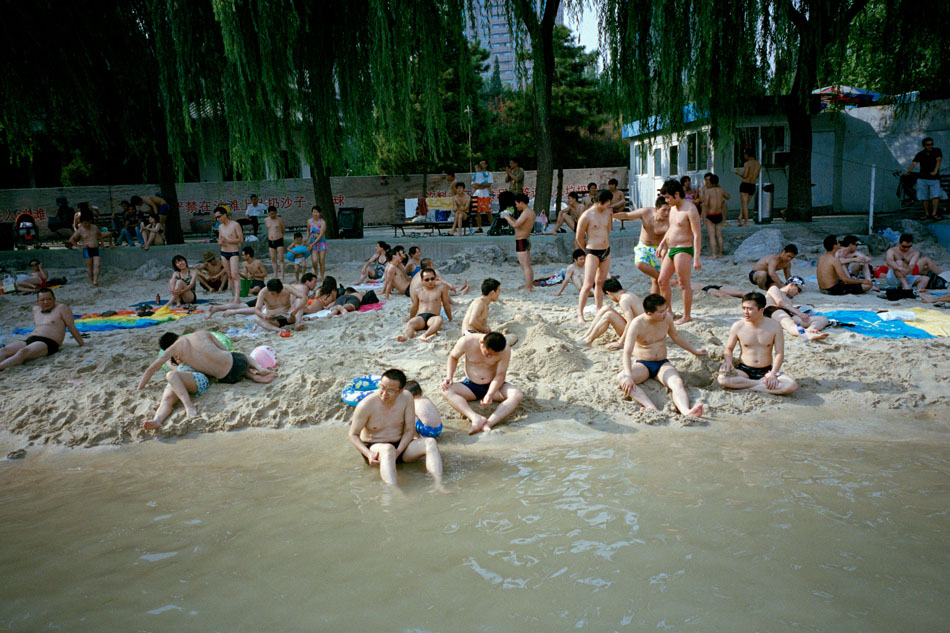
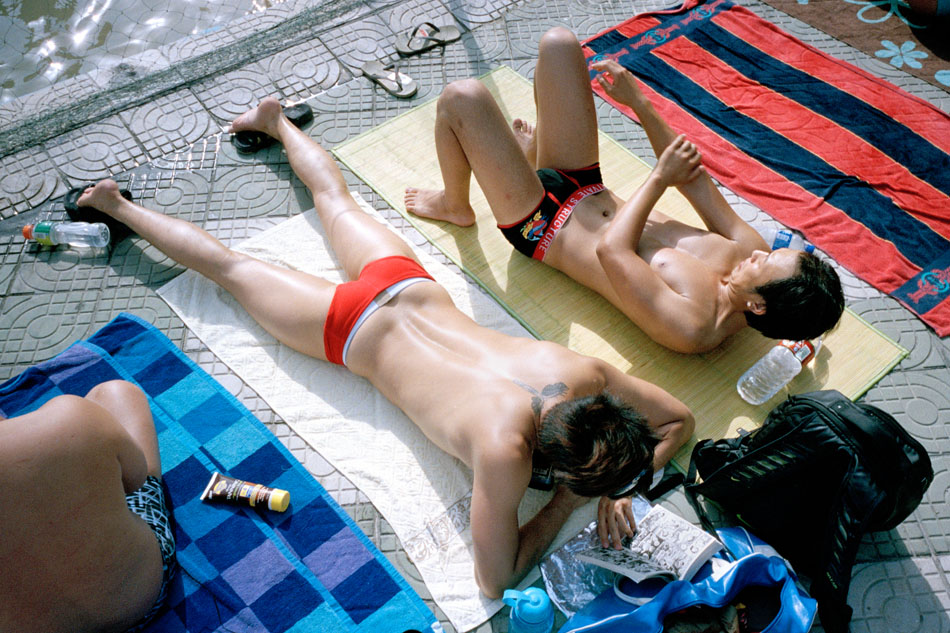

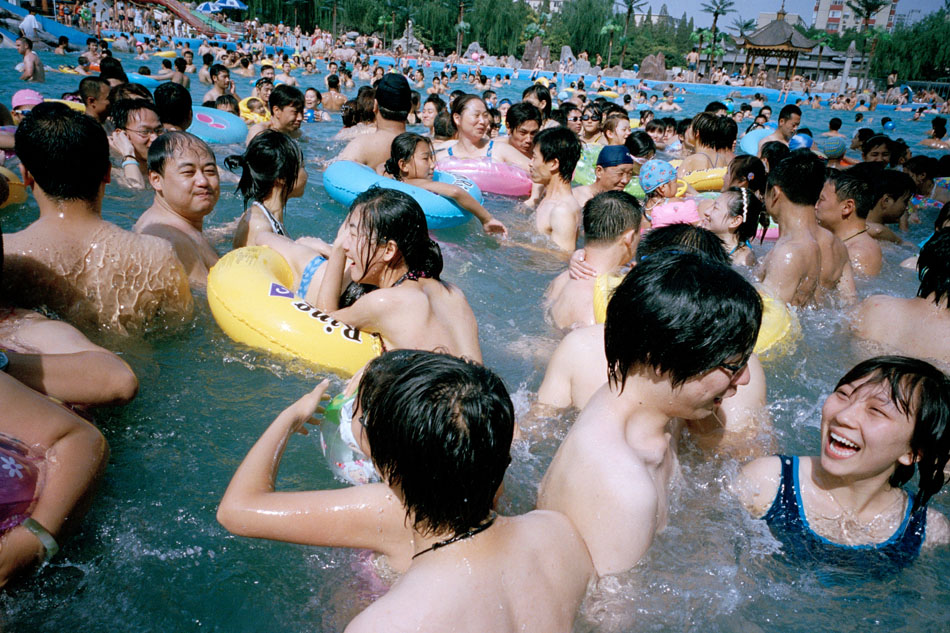
Feb 10, 2009 | Development
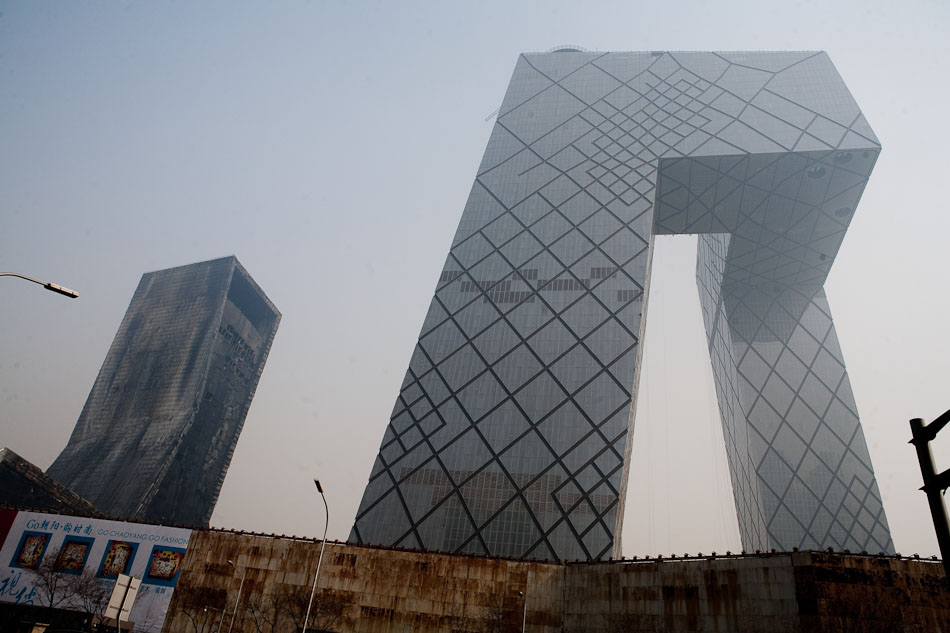
In what can only be seen as an inauspicious portent for the year to come, the Mandarin Oriental Hotel adjacent to the CCTV Tower in Beijing was gutted by a massive inferno last night just months away from its grand opening. So far a Beijing government spokesperson quoted by Xinhua News Agency is blaming the blaze on “illegal launches of fireworks.” The last day of Lunar New Year celebrations always ends with a chaotic barrage of pyrotechnics around the city. This time, however, the biggest show in town was the burning Mandarin Oriental Hotel backlit by the Year of the Ox’s first full moon.
I have no doubt that heads are going to roll after this fiasco. The Mandarin Oriental Hotel was designed by Rem Koolhaas in conjunction with the even more imposing CCTV Tower. Constructed during the 2008 Summer Olympic development boom, the complex stood for a sleek, modern image of Beijing that the Chinese Communist Party continues to paint for the rest of the world. Now the building will always be remembered for the massive fireball it turned into on Lunar New Years and the resulting charred shell standing in the middle of the Central Business District. In an unlikely turn of events, an old world celebration took down China’s new world order.
For now the Chinese media have been rather tightlipped about the situation. China’s Net Nanny was also on the prowl last night as videos posted to YouTube were temporarily blocked as well as links to articles in foreign media sources. Even local workers setting up food carts for morning commuters at 4AM across the street from the tower had no idea that a fire ravaged the building just hours before. In all, there was a general sense of shock mixed with grim acknowledgment of the highly symbolic nature of the building’s destruction.
Fortunately the Mandarin Oriental Hotel was unoccupied before the blaze, the only reported death being that of a firefighter. For now, the spinners in the Propaganda Bureau are going to have an unenviable task of trying to save as much face as possible both domestically and abroad. This is also a sad moment for me personally, as I remain a huge fan of the CCTV complex design. Now the Mandarin Oriental Hotel will be condemned and suffer the fate of the hutongs and block housing that came before.
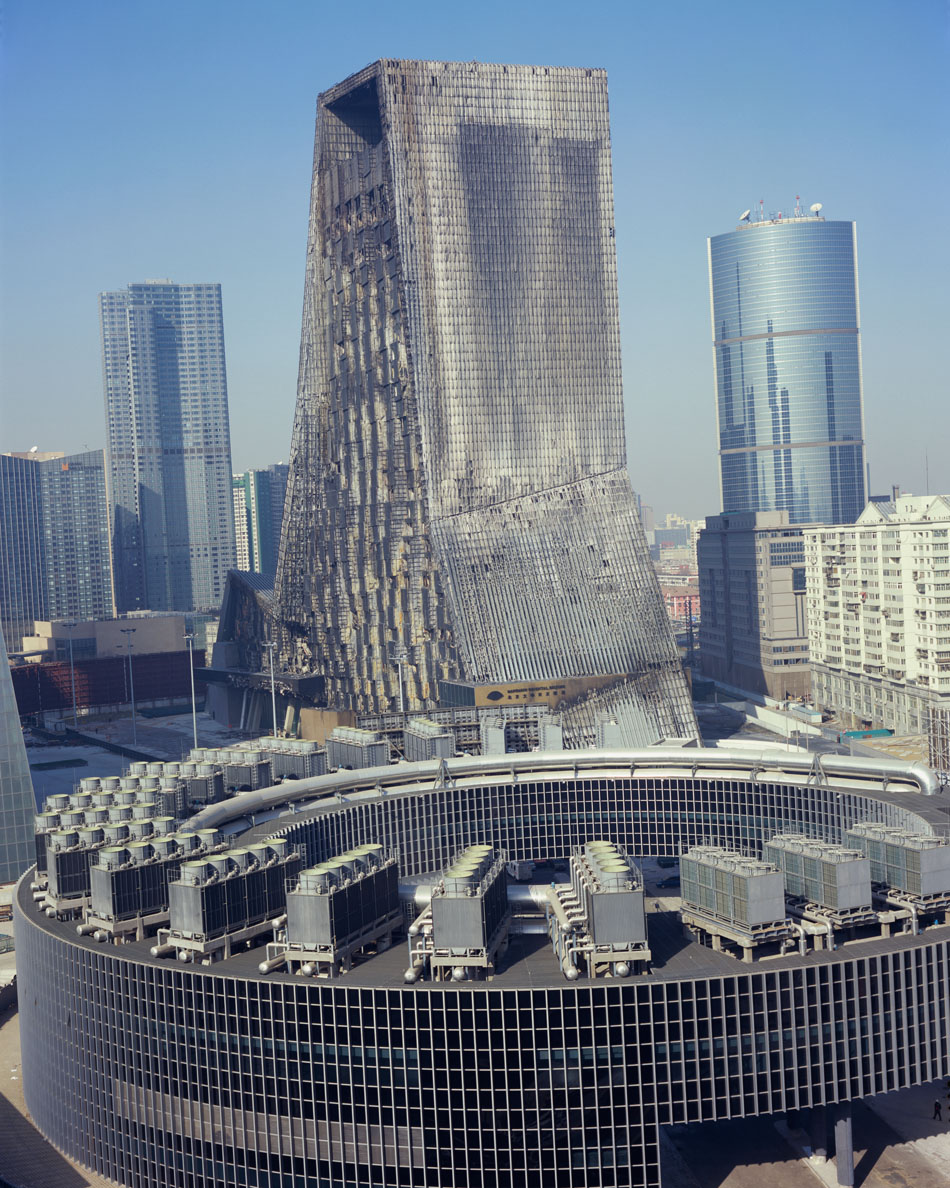
Nov 27, 2008 | Society, Travel
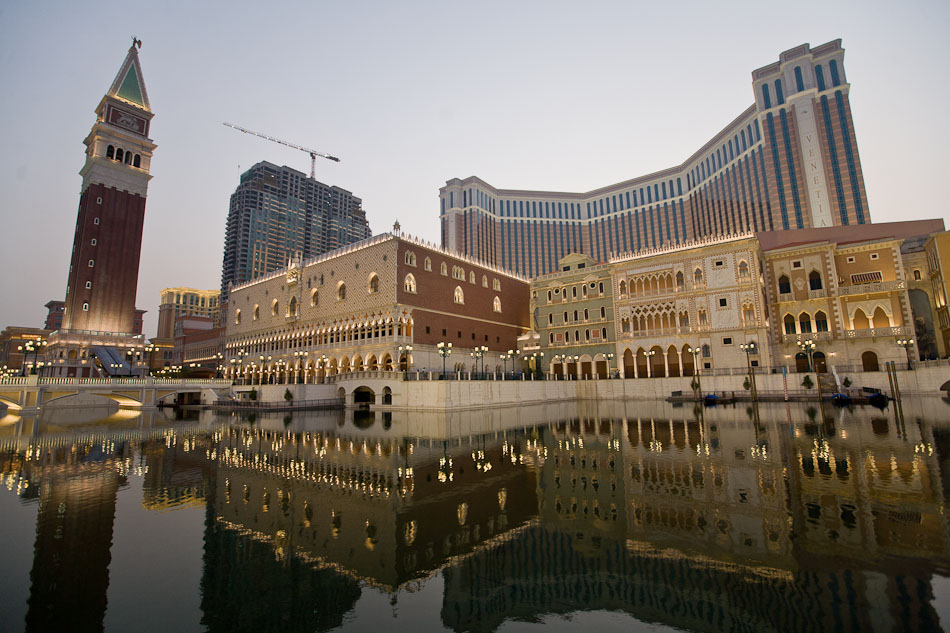
Macau’s unique character draws deeply from its eclectic cultural heritage. Both the first and last European colony in China, Portuguese sovereignty in Macau was not ceded until 1999, over 400 years after the establishment of the original settlement. Since the handover Macau has existed in a liminal realm stipulated by the “one country, two systems” policy – the Chinese state handles defense and foreign affairs but relinquishes control over domestic matters such as the police force, monetary system and political appointments. However, since Macau opened up its casino sector in 2002, the island’s socioeconomic fate was bound to the rise and fall of its entertainment resorts.
Last month I ventured to Macau to inspect the Cotai Strip, a massive development modeled after the Las Vegas Strip and home to the Las Vegas Sands’ Venetian Macau Resort. Currently the largest casino in the world, the Venetian helped Macau surpass Las Vegas in gambling revenues last year. For now Macau remains the only gambling destination within China and easily one of the most prominent within Asia. Still, the Chinese state is trying to curb the rampant profits and concomitant “dark elements” that spawn from the gambling world. Thanks to new border regulations implemented this summer, mainland Chinese can only visit Macau once every three months.
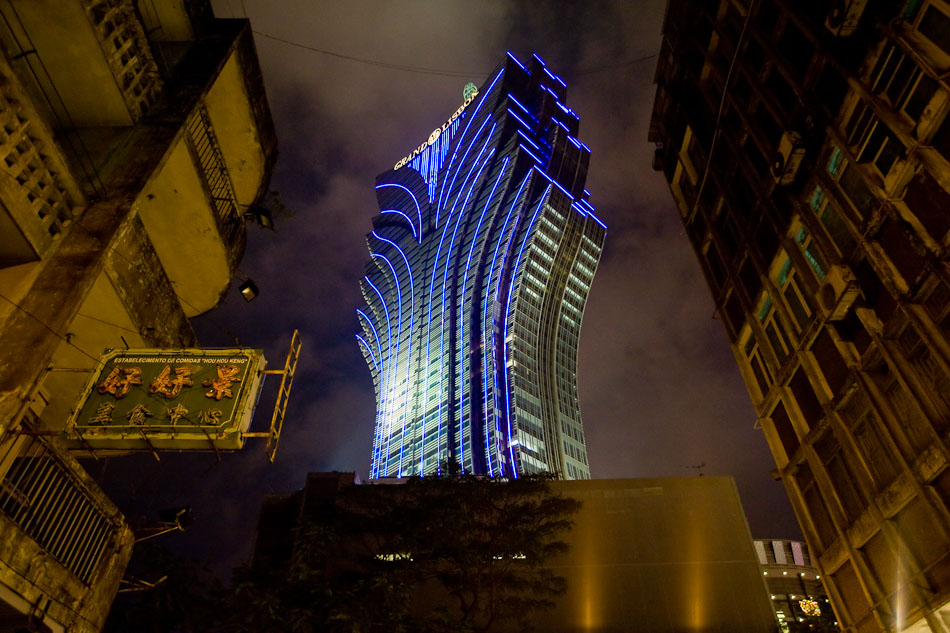
The loss of such an audience now pales in comparison to the impact of the current global financial downturn. Las Vegas Sands recently laid off 11,000 laborers and suspended work on two expansion projects planned for the Cotai Strip. MGM and Galaxy Entertainment also halted future expansion efforts. The hottest casino market in the world fizzled almost overnight. Still, a halt to the unchecked leeching of Asia’s nouveau riche might not be such a horrible turn of events. More shopping malls and roulette tables should be the least of Macau’s concerns as it continues to come to grips with its new identity as Asia’s premiere entertainment destination.
Over the past few years Macau residents have taken to the streets to protest against rampant corruption and labor issues stemming from the rise of powerful casino moguls. Now, with financial markets spiraling out of control, relying on the luxury entertainment industry no longer seems like a safe bet. For once the demand for casinos in Asia cannot meet the excessive supply in Macau. Catering to indulgent tastes at the Venetian does not fit reform-minded market trends. Even if Macau’s casinos make some sort of recovery in the coming months, the whole enterprise carries a heavier stigma of waste and decadence.
